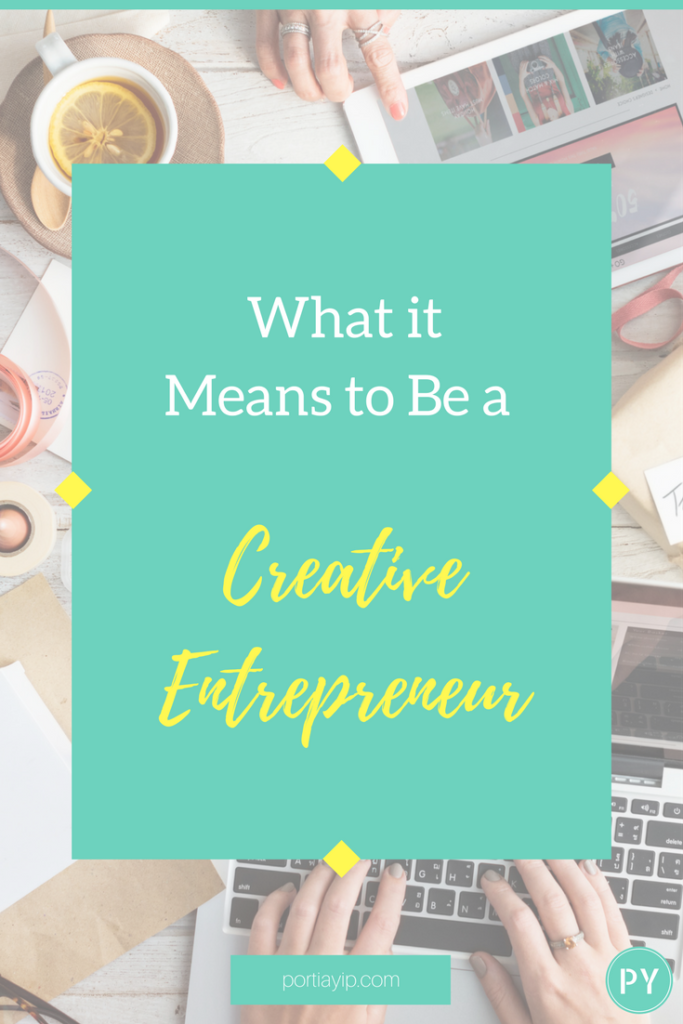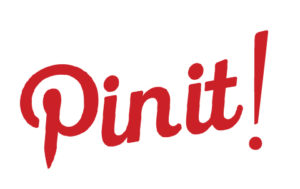
What it Means to Be a Creative Entrepreneur
Along with helping other agencies and small biz owners, I love helping creative entrepreneurs too.
But what exactly does it mean to be a creative entrepreneur? Based on the biz you run, do you consider yourself to be one?
The term itself is making the popularity-rounds these days. And I’m sure everyone has a slightly different definition of it too.
So I wanted to get a little more in-depth about this topic, and see how I could clarify or define it better.
Wikipedia has a definition for creative entrepreneurship that resonates with me:
“Creative entrepreneurship is the practice of setting up a business–or setting yourself up as self-employed–in one of the creative industries.
The focus of the creative entrepreneur differs from that of the typical business entrepreneur or, indeed, the social entrepreneur in that s/he is concerned first and foremost with the creation and exploitation of creative or intellectual capital.
Essentially, creative entrepreneurs are investors in talent–their own or other people’s.”
In other words, a creative entrepreneur (CE) is an individual who uses his or her own creative talents to make money.
That is, someone who makes or creates something for an audience and in return receives some kind of financial gain.
So who or what would be considered a CE?
The list is almost endless really, because “creative field” includes a whole bunch of areas many of us are already involved in, even if it’s just a hobby.
The difference between a hobbyist creative versus a CE though, is whether or not you’re making some cash with your creative field.
Because once people start giving you money for your creative talent, you’re delving into entrepreneurial territory.
Now, let’s break it down further into a few categories.
I think most creative entrepreneurs fall into one (or more) of these groups:
Creators
I like to think of these peeps as the ones who offer service-based products.
Examples: illustrators, graphic and web designers, software developers, interior designers, consultants, filmmakers, photographers, writers, etc.
Makers
The group that makes and sells physical products.
Examples: crafters, painters, potters, florists, fashion designers, jewelry makers, knitters, chefs, etc.
Movers
The ones that do performance-based work.
Examples: musicians, spoken word artists, comedians, dancers, actors, yogis, athletes, personal trainers, etc.
Shakers
Those that use their interpersonal or leadership skills to help or influence others.
Examples: therapists, life coaches, activists, philanthropists, strategists, motivational speakers, etc.
Collaborators
Individuals that fit into any category but come together from different creative backgrounds to work on a joint project.
Examples:
- A writer, editor, illustrator, and photographer coming together to create a book for a painter.
- Musicians, dancers, filmmakers, photographers, and writers coming together to create a music video.
Now, this really gives you an idea of how many trajectories there are to go down the creative entrepreneur path.

What’s interesting is that everyone doesn’t necessarily fit into just one category.
You could be a therapist who sings and writes–making you a creator, maker, and mover. Or a graphic designer who paints and does motivational speeches (creator, maker, shaker).
The combinations are endless.
I myself am a creator and maker, and a wannabe shaker open to collaborating.
In a way, we all have the potential be a creative entrepreneur.
The hard part is getting comfortable with the uncomfortable, working past our own fears and doubts, and going after that work-for-yourself dream.
Leverage your creative talent and turn it into capital. Click To TweetAnd that leads to another point. Something I feel that really defines us CE’s is—wait for it—your mindset. That’s right.
You might call yourself a writer, but if you want to be a CE who writes, you’re gonna have to put your work out there and aim to get paid for it.
For example, if you’re sitting in your basement for hours on end, everyday, writing chapter after chapter, it doesn’t count as CE-like if you keep it hidden away for your eyes only.
Leverage your creative talent and turn it into capital—that’s what leads you to being a professional, creative entrepreneur.
So from here, I want to give you five tidbits that CE’s go through on a regular basis, because this is what makes us different:
1. The courage to make decisions
Ah, yes courage.
It’s one thing to have a great idea, it’s another to believe you can bring the idea to life.
Most people stop there. With the idea.
But then there are the people who go with that gut feeling, take a chance, trust their instincts, and give it their all.
No matter where you are on your creative entrepreneur path, you’re gonna have to channel your courage and do one, or all, of the above. Many, many times if you want to stay on the CE path.
Because it takes courage to listen to yourself, and make the decisions you feel are right even if it’s not gonna make everyone happy.
At the end of the day, it’s you running this show, and your courage will be tested everyday. But CE’s know that they must exercise their courage in the best and worst of times.
So remember to celebrate even the small moments where you showed signs of your courageous self.
It adds up on the confidence scale, and the more you collect, the more it’ll grow.
On another note if you struggle with the fear of rejection, and it’s stopping you from making the decisions you know you want to make, I highly recommend checking out the 100 Days of Rejection Therapy.

2. Stay open with a curious mind
“If you aren’t learning at least one new thing everyday, then you’re not living.”
Wise words I heard from a teenage, single mother.
And it rings true in creativity and entrepreneurship. In fact, this is true for every one of us.
I believe we should never stop learning, no matter how old we get. There’s no harm in continuing to educate yourself, to be open to learning about something new.
What it comes down to is that some people aren’t willing to put in the work that goes into learning a new skill. They don’t feel like educating themselves about a new topic because maybe life gets in the way.
Maybe they already think they know everything, or that trying to learn is hopeless and a waste of time. And this, is unbelievably sad.
We can make a million different excuses, but serious creative entrepreneurs know that learning and knowledge is gold.
If you want to be a creative entrepreneur, or continue to be one, then staying open and curious about the world will take you far on your journey.
You will only become stronger, more informed, and a knowledgeable human being by doing so. Never a bad thing, right?
3. Respect ideas and opinions as they come and go
You may have heard that nothing is truly original anymore, and it’s true.
It’s true in the sense that we draw upon those that have created before us, building on what others have already done.
We take ideas others have had, and try to make it our own.
As Mark Twain says,
“There is no such thing as a new idea. It is impossible. We simply take a lot of old ideas and put them into a sort of mental kaleidoscope.
We give them a turn and they make new and curious combinations.
We keep on turning and making new combinations indefinitely; but they are the same old pieces of colored glass that have been in use through all the ages.”
So we borrow ideas, mash them up, and recreate it into something that feels new to us.
And that’s okay, that’s what we’re supposed to do as curious humans. Take what others have done, and see how we can do the same, if not better, and then put our own spin on things.
With ideas, sometimes we don’t act on them and then miraculously, we see someone else reaping the benefits of success from that very similar idea.
Creative entrepreneurs will have many ideas come and go over time. And we need to respect the ideas that we try, as well as let go.
The same goes for other people’s opinions.
When you’re trying to do your own thing as a CE, a lot of people will give you advice, or even tell you what you should be doing.
The key thing here is to respect what everyone has to say, but then decide for yourself if it’s advice worth following, or simply letting go.

4. Take action and grab those opportunities
The only way to know if something is for you or not, is to step forward and try.
Since I’m a projects-kind-of-person, I love working on something that has an end date. It motivates me to learn, work hard, and get it done to the best of my ability.
I once read in a article that clarity comes from engagement.
And for CE’s, taking action is part of the process because we’re constant do-ers instead of forever thinkers.
No matter what the outcome is from said opportunity, it’s always gonna lead to some kind of growth or a deeper understanding of ourselves and our work.
Those of us who have ventured into CE territory, know that the opportunities are out there.
We just have to take a risk, put ourselves out there, and see what opportunities we can (and want to) grab onto.
5. Embrace failure and move forward
Failure helps us learn and grow.
As much as it sucks, it will always be important for our identity and work as a creative entrepreneur.
Amazing things can come out of failure. It’s not uncommon to see someone rise to the top after reaching those low points.
The take away is to keep going, improve, and not give up. Unless you know in your soul that it’s time to move on to a different venture, and there’s no shame in that.
I know it’s not easy to accept or embrace failure. But when we’re vulnerable and can admit that we didn’t do our best, we ultimately become a better version of ourselves.
Failure will always be important for our identity and work as a creative entrepreneur. Click To TweetBecause we’ll have learned from said crappy experience.
Try this: if you look back today at some of your failures, how do you feel?
Maybe it’s regret, fear, sadness or anger. But think about how much you’ve grown or learned since then.
Where did that failure lead you to? To a new venture? To knowing that deep down, what you were doing back then just really wasn’t for you?
In the end, most of us will be okay after each failure.
It’ll become a memory we might revisit here and then. But that memory won’t hurt as much, because we’ll have learned and lived, and moved on.



Thanks for explaining everything in detail. 🙂 For a long time I had no idea what I want to do in my life because the idea of being someone’s employee never seemed appealing to me. Just recently I figured out that writing is what I love to do the most and I could actually create a blog and not only earn money with that but also make an impact to the world.
Yes! The idea of being our own boss isn’t something for everyone, but it’s an option that brings about so many other opportunities. Especially for us writers, the freedom it brings to educate others with our words, help out another biz, or to express how we feel on topics we’re passionate about is all possible when we’re doing our own thing as freelancers or entrepreneurs 🙂
Many years ago the idea of being an entrepreneur intrigued me and scared me at the same time. Now here I am three years of being one. I create recipes for my blog, take photos, do all the writing, and the social media promotion. Not to mention all the techy stuff I’ve had to learn. I wear many hats and love all of it!
Hey Willow! I completely agree–it’s both scary and exciting but totally worth it in the end. And yes! Wearing multiple hats is a CE skill we gotta love too, even if it’s challenging and keeps us busy 24/7 😉 So happy to hear the CE life is working out for you. Thanks for sharing part of your story!
Love this! I’m a creative entrepreneur myself and it’s such an amazing and rewarding experience.
Hi Jenny! Thanks for stopping by. It’s pretty awesome to know there are so many of us CE folks out there 🙂 What kind of creative entrepreneur are you?